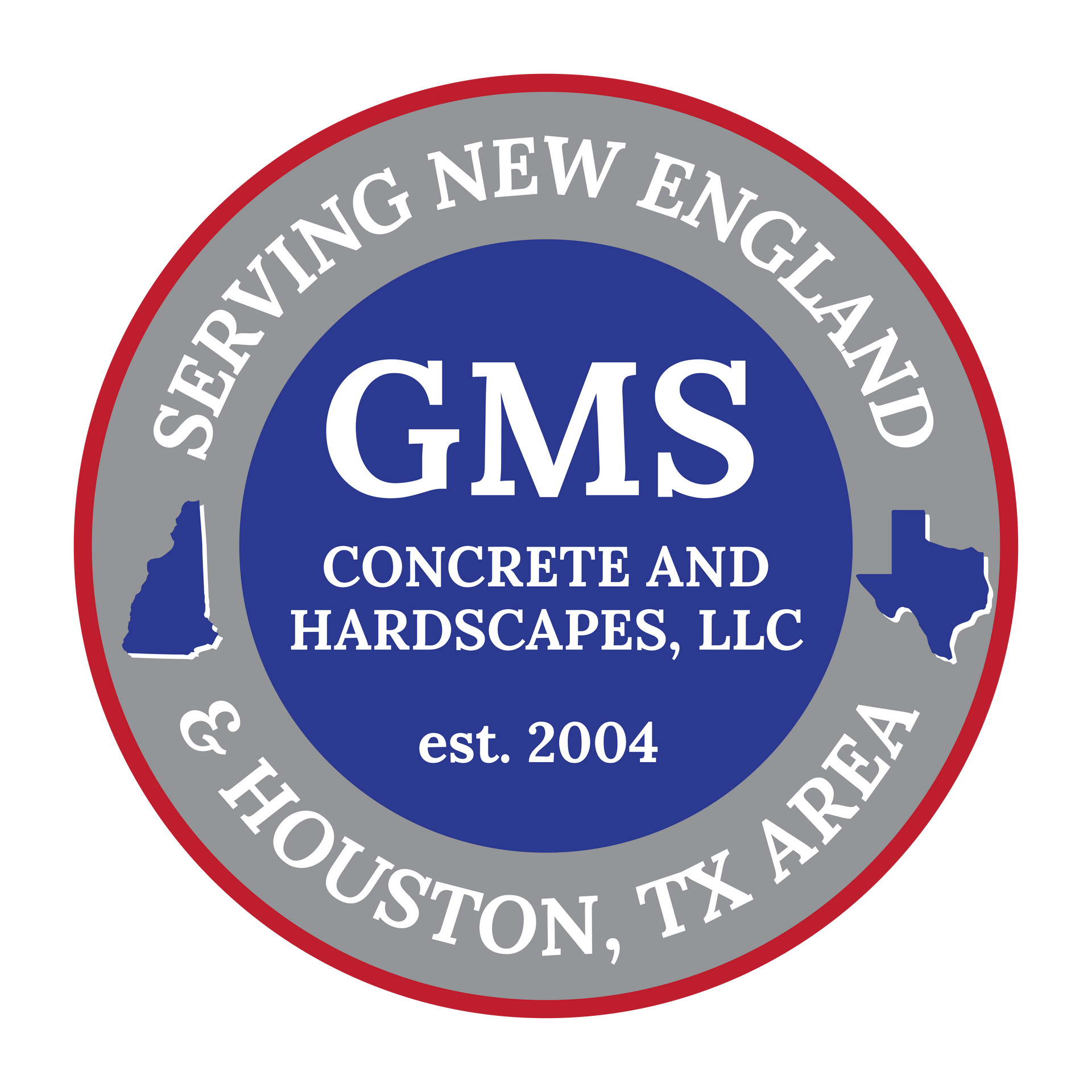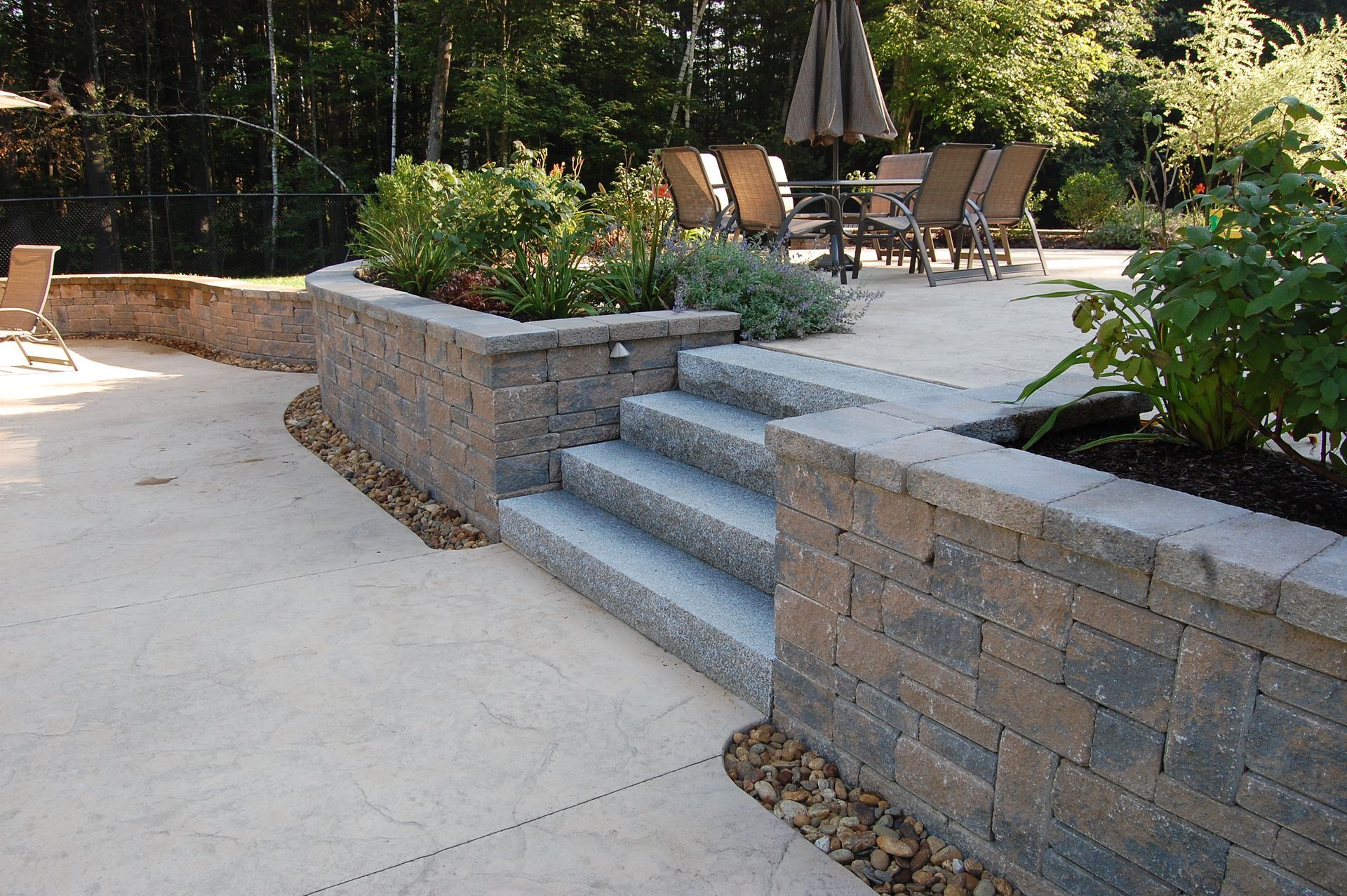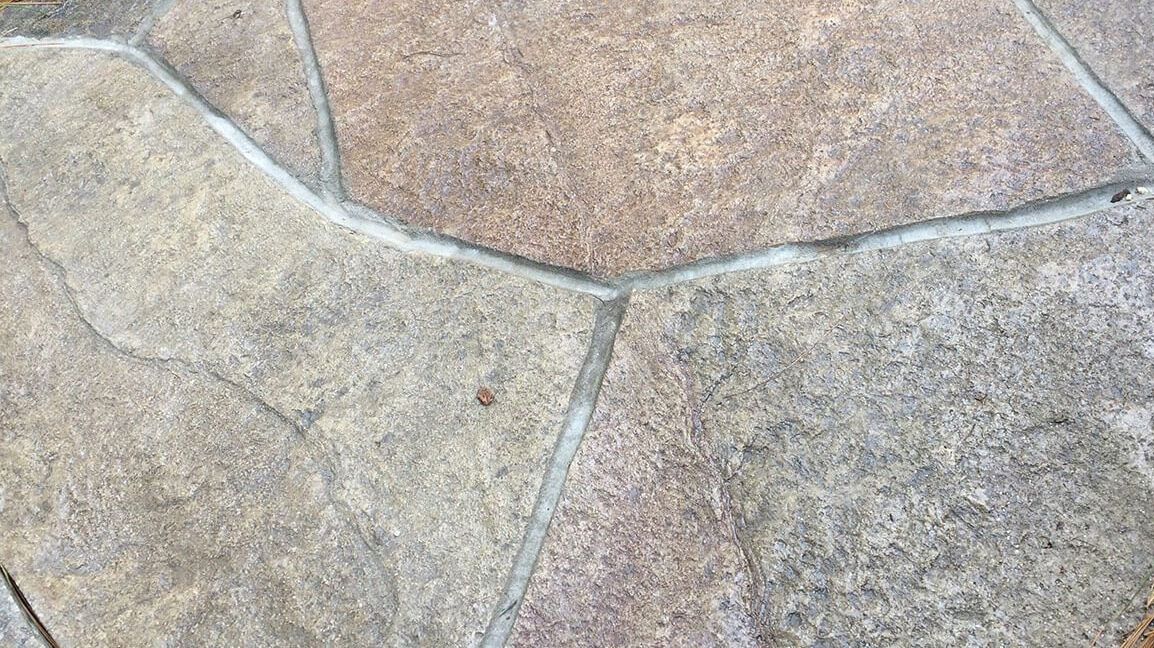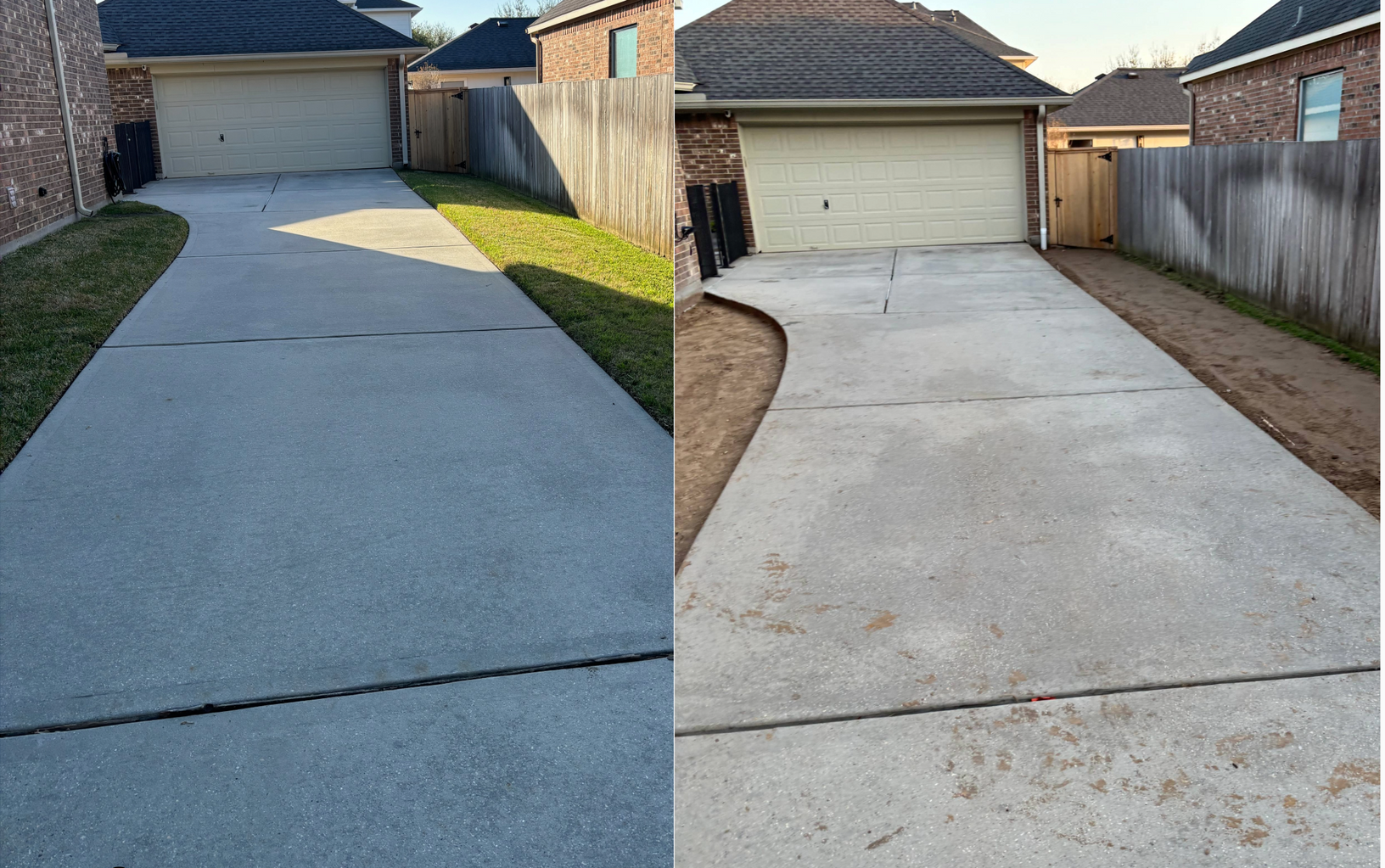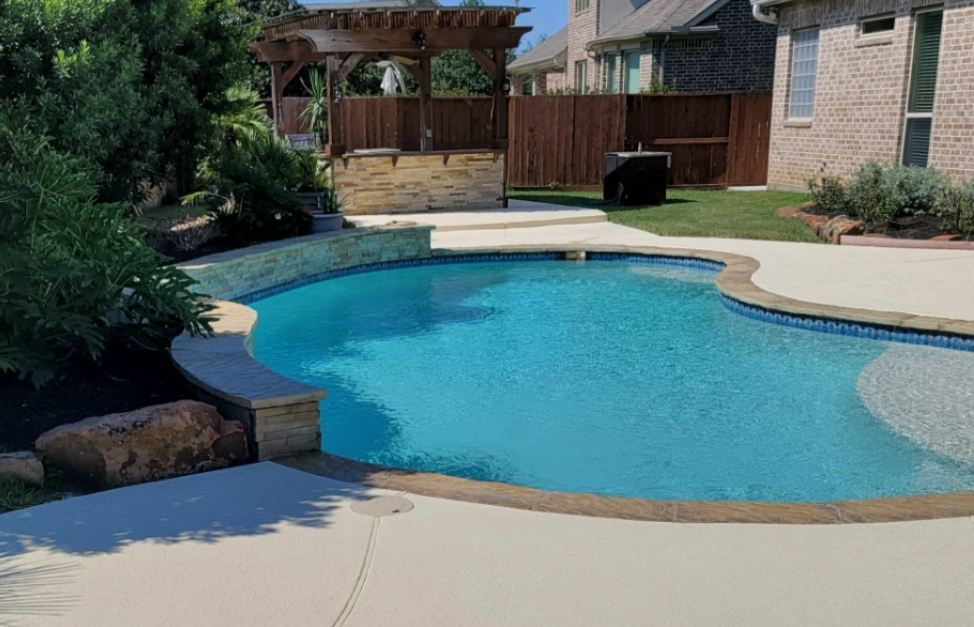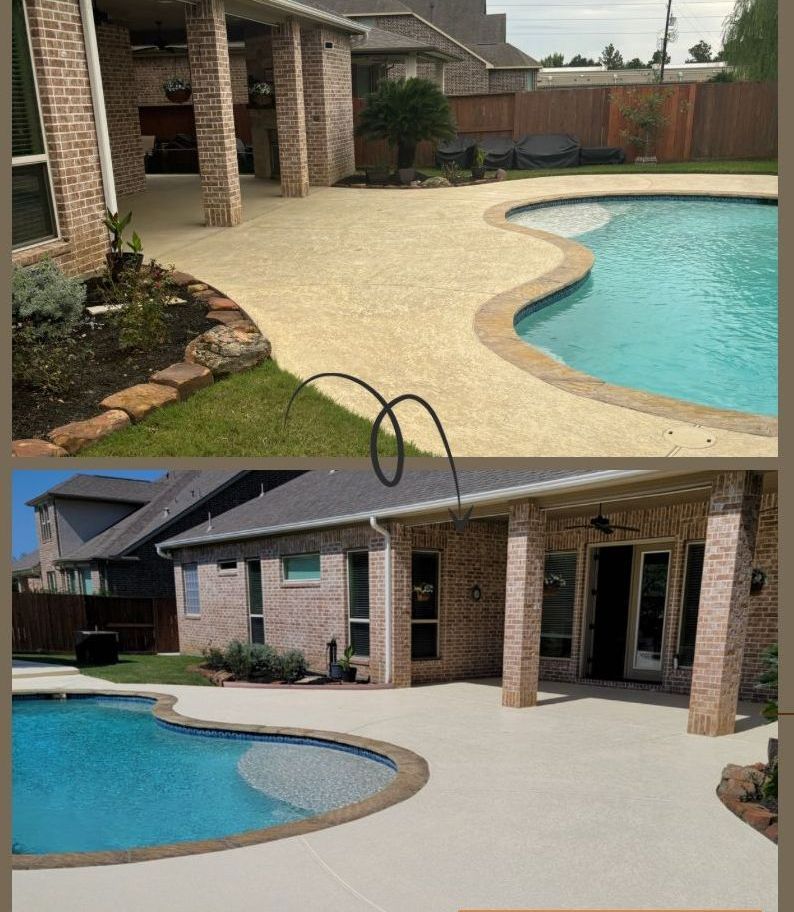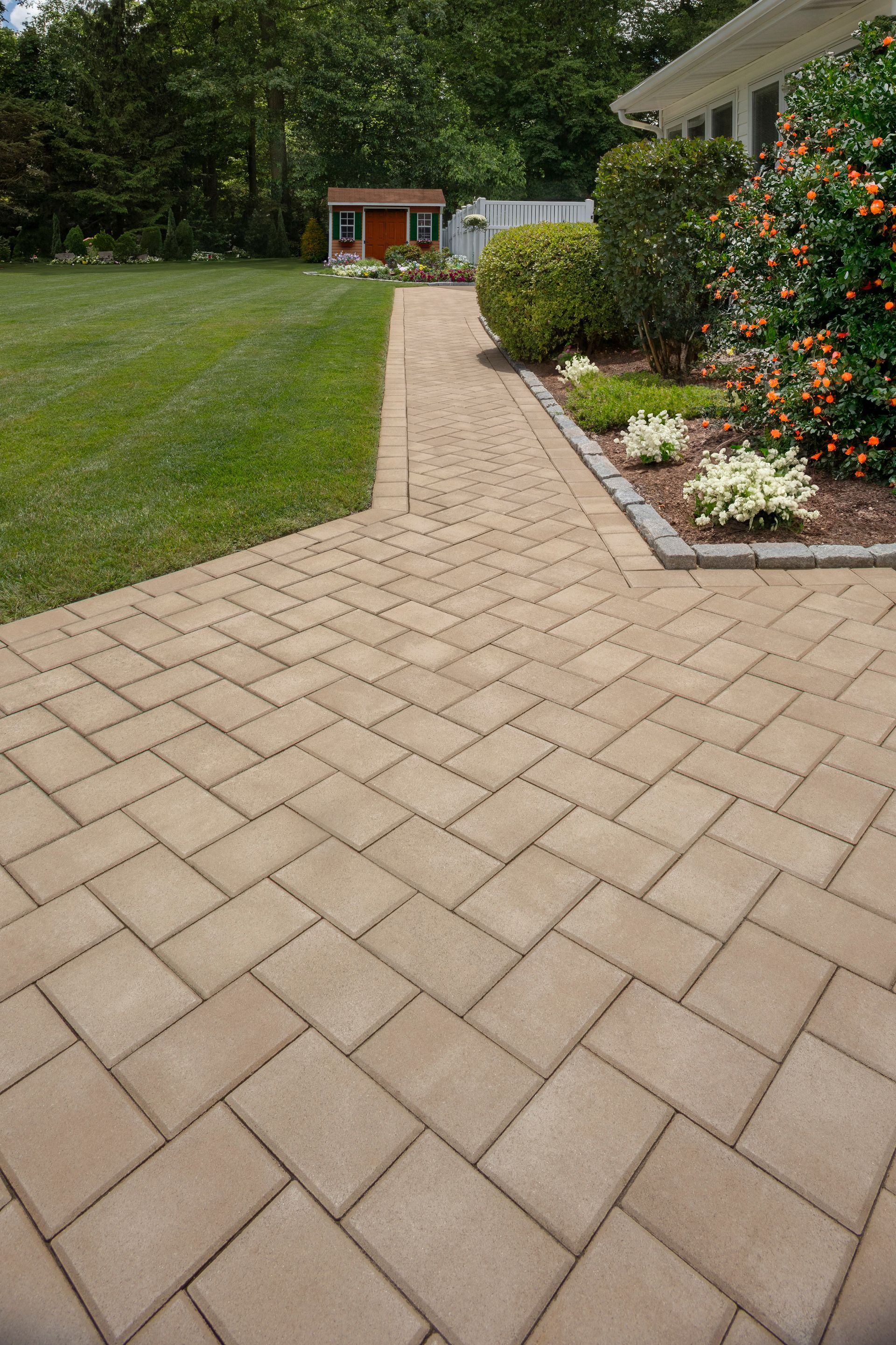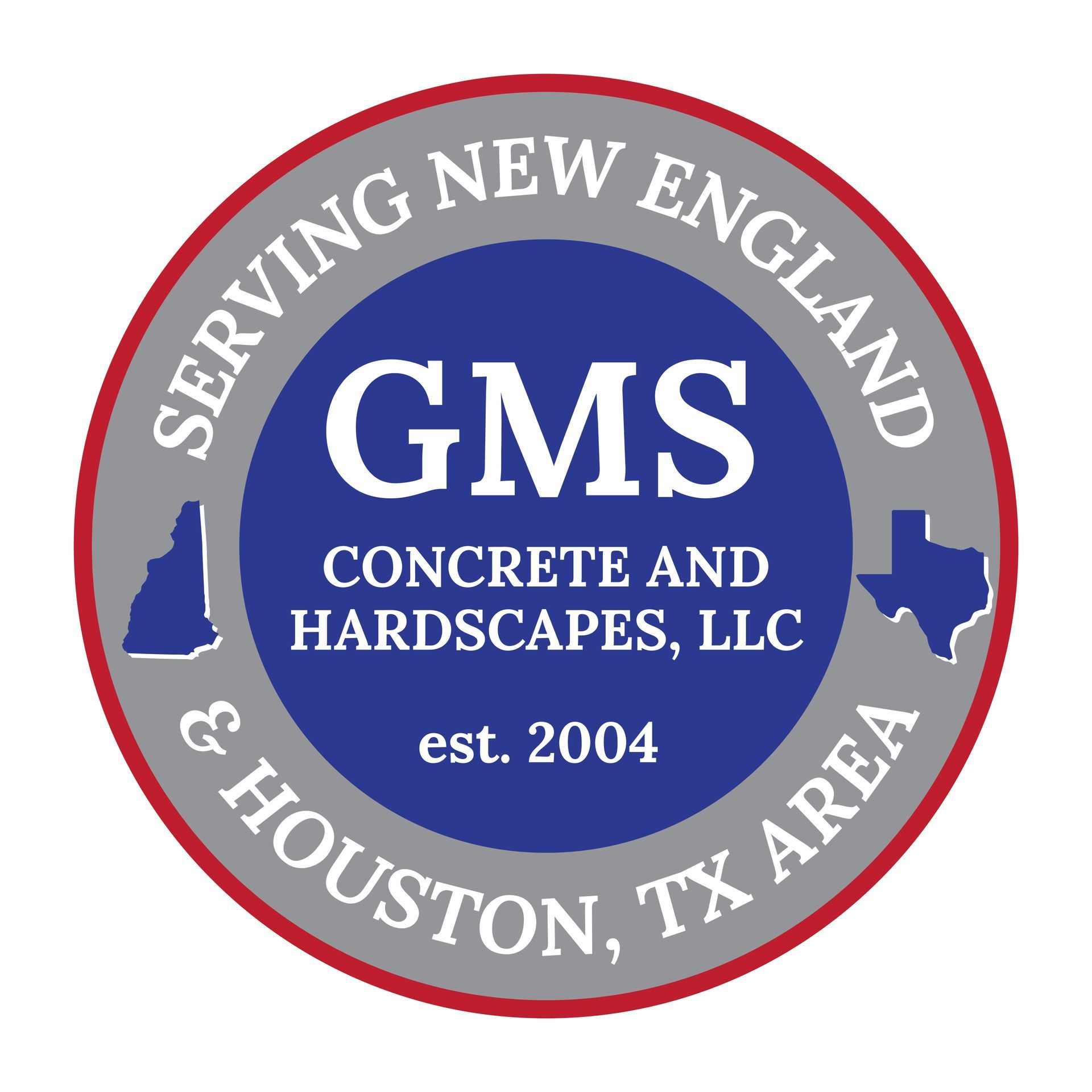GMS Decorative Concrete & Hardscape
Why Proper Concrete Sealing Matters for New England Weather All Year Round!
New Hampshire’s freeze-thaw cycles can be brutal on outdoor concrete. Sealing your concrete is one of the most important steps to protect your investment. Here's why sealing is essential:
Spring: Prepare for a Fresh Start
- Seal After Winter Damage: Repair small cracks and seal to prevent spring rains from worsening them.
- Protect Against Moisture: Heavy spring rains can seep into unsealed concrete, causing erosion.
- Enhance Curb Appeal: A fresh seal gives patios, walkways, and driveways a clean, polished look for the season ahead.
Summer: Beat the Heat
- Prevent UV Damage: Summer sun can fade and weaken exposed concrete; sealing locks in color and strength.
- Reduce Surface Dusting: Sealed surfaces resist breaking down into dust under intense summer heat.
- Easy Cleaning: Barbecue spills, sunscreen oils, and dirt from summer fun are easier to wash off sealed surfaces.
Winter: Defend Against Freeze-Thaw Damage
- Prevents Water Penetration: Reduces cracks from freezing moisture.
- Protects Against De-Icing Salts: Shields concrete from salt and chemical damage during snow and ice removal.
- Extends Lifespan: Helps outdoor spaces survive harsh New England winters without major repairs.
Pro Tip:
Ideally, concrete should be sealed every 2–3 years, depending on usage and exposure. Spring and early summer are the best times to re-seal, so your surfaces are ready to handle sun, rain, and winter ahead!
